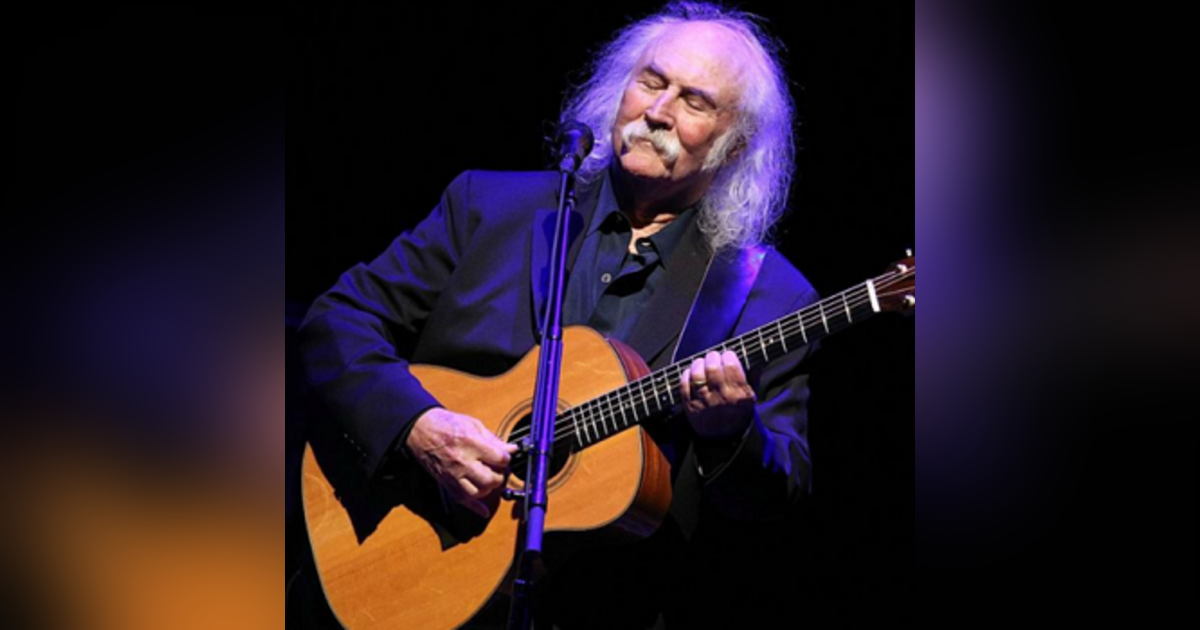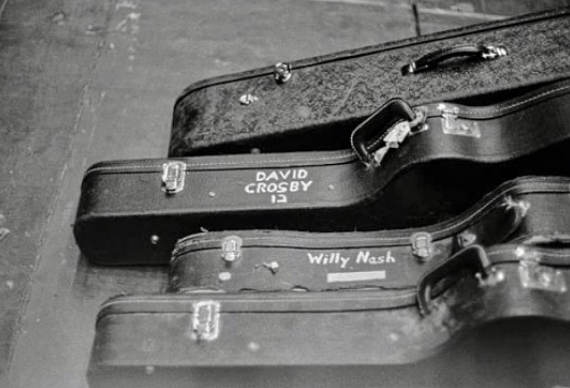David Crosby, Mr. Tambourine Man

Explore the rich history of folk rock through the work of David Crosby and his band Crosby, Stills, Nash and Young. From hit songs to solo performances, delve into the music and legacy of one of the greatest musicians of our time.
supporting links
1. David Crosby Timeline [Wikipedia]
2. The Byrds [Wikipedia]
3. David Crosby’s Top 20 Biggest Billboard Hits [Billboard]
4. Floyd Crosby [Wikipedia]
5. Crosby, Stills & Nash - Album Cover Location [Popspots]
6. Complete List Of Crosby, Stills, Nash & Young Albums [Classic Rock History]
7. David Crosby Intense Last Interview Before Death [YouTube]
follow on social media
1. @thedavidcrosby [Twitter]
2. thedavidcrosby [Instagram]
Contact That's Life, I Swear
- Tweet us at @RedPhantom
- Listen to audios:
-Apple https://apple.co/3MAFxhb
-Google https://bit.ly/3L2K4Iu
-Spotify https://spoti.fi/3xCzww4
-My Website: https://bit.ly/39CE9MB - Email us at https://www.thatslifeiswear.com/contact/
- Opening theme song credit: Courtesy of Fesliyan Studios
- If you like to leave a review for an episode, please submit on Apple Podcast or on my website
- Do you have topics of interest you'd like to hear for future podcasts? If so please email us at: https://www.thatslifeiswear.com/contact/
Thank you for following the That's Life I Swear podcast!!
Hi everyone, I’m Rick Barron, your host, and welcome to my podcast That’s Life, I Swear
David Crosby in his later years. Courtesy of: Variety
David Crosby was a musician, singer-songwriter, and actor who is best known as a founding member of the iconic rock bands The Byrds and Crosby, Stills, Nash & Young. He was born on August 14, 1941 in Los Angeles, California and began his music career in the 1960s. Crosby was a rebel with a cause and ready to be heard.
Let’s jump into this.
To those who were strong followers of Crosby’s Twitter account, his death came as no surprise. He was an avid user of Twitter. In one of his last tweets he made a made a joke regarding heaven: “I heard the place is overrated…cloudy.”
So, who was David Crosby?
He grew up in a musical family and began playing guitar and writing songs at a young age. Guess one could say he was already destined by birth as to the direction life would take him.
Floyd Crosby. Courtesy of: The Historic Gatlinburg Inn
He was the son of cinematographer Floyd Crosby, who won an Oscar for his 1931 work for the movie “Tabu.” Other movies Floyd worked on was High Noon (1952), for which he won a Golden Globe Award. Growing up, David stayed in the L.A. and Santa Barbara area. His mind was not focused on being a good student, but rather he gravitated to acting and music at an early age.
Regarding acting, you may not remember but David played a bit part as a pirate in the 1991 movie ‘Hook’ by Steven Spielberg. His character’s name was ‘Tickles’.
David dropped out of Santa Barbara City College to pursue his dream, a career in music. It was during the 60’s that he became involved in the commercial folk music scene. He got a break and joined up with Les Baxter’s Balladeers, a Limeliters or Kingston Trio-styled unit organized by the well-known composer-arranger.
The Byrds. Courtesy of: Tone Deaf
In 1964, he co-founded the folk-rock band The Byrds with Roger McGuinn and Chris Hillman. It didn’t take long for the band to quickly gained popularity with their hit cover of Bob Dylan's "Mr. Tambourine Man," which reached number one on the Billboard charts in 1965. Crosby wrote and sang many of the band's most popular songs, including "Why," "Eight Miles High," and "Lady Friend." Boy, hearing those songs take me back.
Byrds album covers. Courtesy of: Google Search
Like many bands, personalities and egos got in the way. It reached a boiling point in October of 1967, when Roger McGuinn and Chris Hillman drove their Porsches to Crosby’s Beverly Glen house and fired him from the Byrds.
For David, this moment was just a small bump in the road. He never allowed bad news rent space in his head.
Crosby, Stills and Nash band. Courtesy of MONDO POP
After leaving The Byrds, Crosby formed a new band with Stephen Stills and Graham Nash, called Crosby, Stills & Nash (CSN). The band released their self-titled debut album in 1969, which included hit songs like "Marrakesh Express" and "Suite: Judy Blue Eyes."
The band's harmonies and political activism made them one of the most popular and influential bands of the late 60’s and 70’. In 1970, the group added Neil Young to the lineup and became Crosby, Stills, Nash & Young. The group released several successful albums, including "Déjà Vu" and "4 Way Street," and went on to a long list of successful tours.
From left to right: Stephen Stills, Graham Nash and David Crosby at Wally Heider Studio 3, February 1969.
Courtesy of: Sound on Sound
The group's music and message of peace and social justice resonated with a generation of young people during the Vietnam War.
Deja vu album. Courtesy of: Google Search
CSNY released several albums and singles, including "Ohio" and "Southern Cross." They were known for their powerful live performances and politically charged songs, often addressing issues such as the Vietnam War and environmentalism.
Crosby also had a successful solo career, releasing several albums including "If I Could Only Remember My Name," "Crosby & Nash," and "Wind on the Water." He also made appearances in films and television, including the documentary "The Byrds: Wasn't Born to Follow" and the television show "The Simpsons."
Mug shot of David Crosby. Courtesy of: Music History Calendar
Crosby had a tumultuous personal life, including struggles with drug addiction and legal problems just as CSN&Y popularity started to soar. In the 1980s, he was arrested several times on drugs. He was later arrested in a Dallas nightclub and charged with possessing a .45-caliber handgun and a pipe he used to freebase cocaine. Crosby was convicted on weapons charges and served five months of a five-year sentence in 1986. He was an open book about his heavy addiction to cocaine and heroin.
During his long career he and the band collaborated with a wide range of music artists, including James Taylor, Phil Collins, and Jackson Browne. I mean we’re talking about some major artists here. He was inducted into the Rock and Roll Hall of Fame twice, as a member of both the Byrds and Crosby, Stills & Nash.
Crosby had a deep respect for Bob Dylan, but not right away. He didn't like Bob Dylan's vocals at first, but after hearing Dylan singing "Blowing in the Wind," and other songs that he said later that watching Dylan "expressing the values systems that I respected" was an eye-opener for him. It finally hit him on who and what, Bob Dylan was all about. He saw Dylan as "one of the major poets of our time."
Crosby's music profoundly impacted generations of musicians and fans. His songwriting, harmonies, and guitar playing have been praised as some of the most innovative and influential of his time.
A song he co-wrote “Wooden Ships” with both Stephen Stills and Jefferson Airplane's Paul Kantner, reveals his song writing skills. The politically charged number was written as the Vietnam War was in full swing, and was one of the most socially conscious songs in the Crosby Stills and Nash catalog. I recall listening to this song a lot while serving in the Army during the Vietnam War.
During an interview with Nate Chinen of the New York Times in 2016, one of the questions centered around the song called “Time I Have” from the album, “Croz”. Nate stated “you start it by singing: “People do so many things that make me mad/But angry isn’t how I want to spend what time I have.” Nate asked Crosby what those words meant.
Crosby replied, and I quote:
“I spent a lot of my life angry, and I don’t want to, because the less life you have left, the more you treasure it, and the more you are trying to use every minute to accomplish something. That attitude, which comes with age, is all through this record. There’s a choice to be made with every minute that you spend. And I’m spending mine having fun, man, and creating.”
End quote.
His political activism and commitment to social and environmental causes have also been an inspiration to many.
Crosby’s political points of view ranged from the insanity that Trump could get to be the candidate of a major party, was very disturbing. He was quite the Twitter user, having tweeted about 80,000 times since joining in March of 2011.
With Crosby being so outspoken he never censored his tweets and was straight to the point with his thoughts whether you liked it or not. He loved the interaction with fans and those who hated him.
Crosby tweeted about topics ranging from George Santos, the environment and COVID-19. One of last tweets on the day of his passing, he showed his distain with a tweet and photo of Republican Reps, Matt Gaetz, Marjorie Taylor Greene, and Lauren Boebert; with the text ‘Rampant self-interest’.
David Crosby's life and career are an example of the heights of success, the depths of addiction and personal struggles, and the resilience and creativity that can come with survival. His influence on music and culture will be felt for years to come.
As the music world said good-bye to David Crosby, Graham Nash, posted on his Instagram account, sharing the news of his longtime collaborator’s death and reflected on their
decades-long friendship. Part of the quote was:
“I know people tend to focus on how volatile our relationship has been at times, but what has always mattered to David and me more than anything was the pure joy of the music we created together, the sound we discovered with one another, and the deep friendship we shared over all these many long years.”
End quote
The Instagram text has a black and white vintage photo of his guitar case next to another that bore Crosby’s name.
Guitar cases. Courtesy of: Graham Nash Instagram account
What can we learn from this story? What’s the takeaway?
Crosby was a rebel, no doubt about it. He lived a life many of us wish we had the courage to attempt. Well, he didn’t attempt it, he did it, good and bad.
Graham Nash and Stephen Stills had words of remembrance for Crosby:
Nash: “David was fearless in life and in music. He leaves behind a tremendous void as far as sheer personality and talent in this world.”
Stills: “He was without question a giant of a musician, and his harmonic sensibilities were nothing short of genius.”
David Crosby. Courtesy of: Getty Images
Crosby had many quotes but one I think sums up how he looked at the remaining years of his life.
“Don’t waste the time. Time is the final currency, man. Not money, not power, it’s time”
Well, there you go. That’s life, I swear.
For further information regarding the material covered in this episode, I invite you to visit my website that you can find on either Apple Podcasts/iTunes or Google Podcasts, for show notes calling out key pieces of content mentioned, and the episode transcript.
As always, I thank you for listening.
Be sure to subscribe here or wherever you get your podcast so you don't miss an episode. See you soon.




















